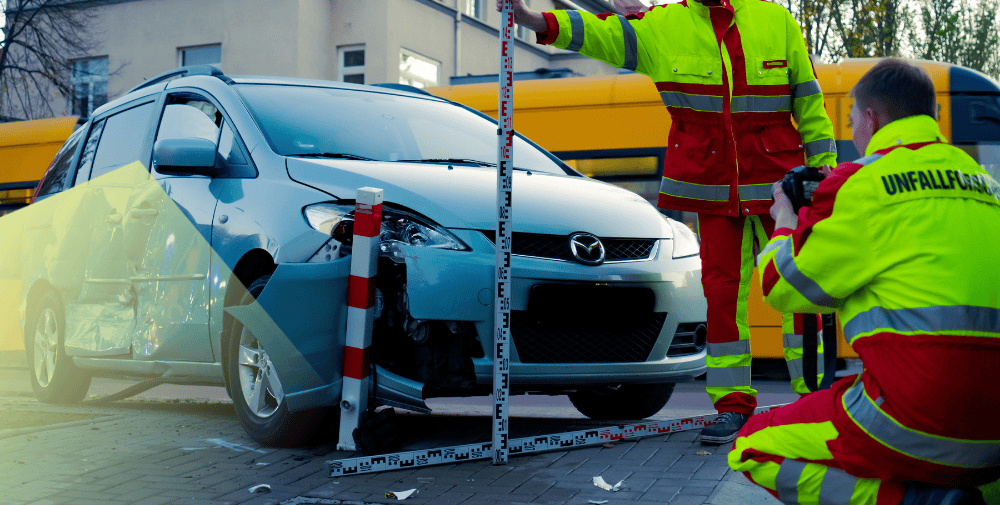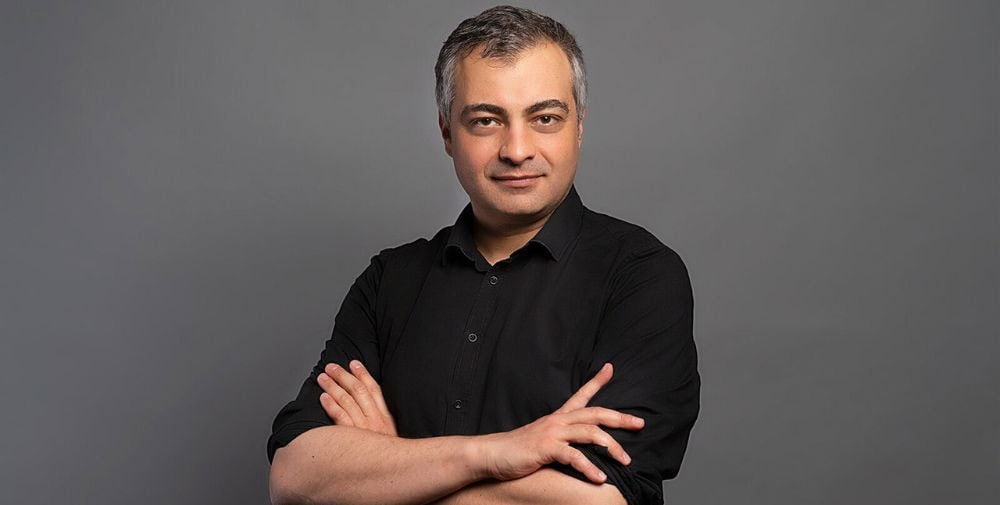Saxony and its state capital Dresden are shaping the traffic of tomorrow
Saxony is known for many things. For example, for its beautiful landscapes – such as the Elbe floodplains or Saxon Switzerland. Its numerous cultural treasures and museums. Or its inhabitants’ penchant for coffee. Unknown to many, however, is Saxony’s ambition and expertise in shaping the transportation of tomorrow. Until 1990, for example, there was the “Friedrich List” University of Applied Sciences for Transport (now HTW Dresden), which is still unique today. Later, the equally unique and modern traffic management system VAMOS was developed in the Saxon state capital and at the local TU Dresden. VAMOS networks the traffic detectors available in the region and the various traffic control and guidance systems of the urban road network and the highways. Based on the traffic situation detected, the system regulates various traffic control systems fully automatically and, as a content provider – thanks to state-of-the-art software “made in Saxony” – provides information for service providers. Dresden is also one of the nationwide test cities for autonomous vehicles. Since 2016, autonomous driving and the software solutions used in automated vehicles have been tested here on six test corridors with a total length of 20 kilometers. In the “DatenTanken” project, all “MobiPunkte” of Dresdner Verkehrsbetriebe (DVB) have been electrified. More than 70 fast-charging stations and over 250 charging points have been built throughout the city. As a result, Dresden is now one of Germany’s leaders in terms of intelligent transport systems and eCarSharing. Since May 2024, the Elbe metropolis has also been part of the Europe-wide “Mobilities for EU” project, making it one of only two pilot cities in which sustainable mobility solutions are being put through their paces in model projects. With the core topics of electrification, automation and connectivity, the aim is to actively shape the mobility of the future in urban areas.
Colleges, universities and research institutes as a nucleus for mobility solutions
Yes, Dresden in particular is predestined for the development of modern mobility solutions with its excellent universities (including the Dresden University of Applied Sciences), universities (including the Dresden University of Technology) and research institutes (including the Fraunhofer Institute for Transportation and Infrastructure Systems IVI). Renowned professorships, from transport science to infrastructure and vehicle technology, ensure a constant supply of highly trained specialists. The Saxon state capital – known as the Fraunhofer capital of Germany – is also excellently positioned in terms of research, and not only in the field of university research. It is therefore no wonder that this nucleus has been producing mobility solutions for the whole of Germany for years, some of which are unique. With Fahrzeugsystemdaten GmbH, traffic accident research at TU Dresden GmbH and the COLLISION ZERO project, we explored three of the state’s most exciting ventures in this field for you. Find out everything you need to know about these hidden champions, their solutions and their influence on road safety in the following three articles.
Fahrzeugsystemdaten (FSD) GmbH: No main inspection (HU) without Saxon know-how
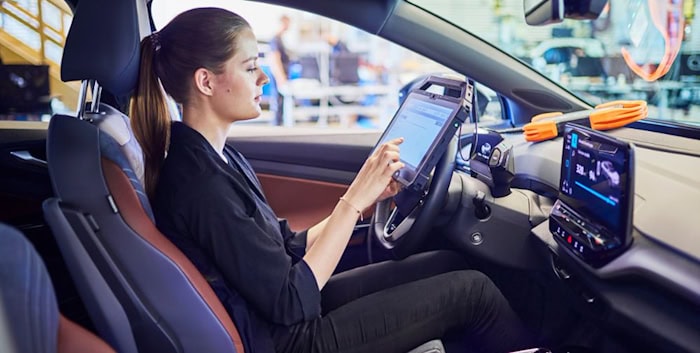
Testing the HU adapter at the FSD branch office in Radeberg. Image: FSD GmbH
30 million vehicles in Germany are inspected every year by the major testing organizations – TÜV, DEKRA, KÜS, GTÜ and others. If you want to obtain one of the coveted main inspection seals for your car, truck, bus, motorcycle or trailer, you have to regularly visit one of the more than 18,000 experts from these organizations throughout Germany. None of these main inspections would be possible today without a medium-sized company from Dresden, Fahrzeugsystemdaten (FSD) GmbH. Take a look with us at a company that is unique in Germany and is even mentioned in the road traffic regulations. Find out all about the in-house developments, solutions and partnerships that make FSD GmbH so successful. You are sure to turn heads at your next TÜV or DEKRA appointment at the latest.
Traffic Accident Research at TU Dresden (VUFO) GmbH: Understanding accidents in order to avoid accidents and their consequences
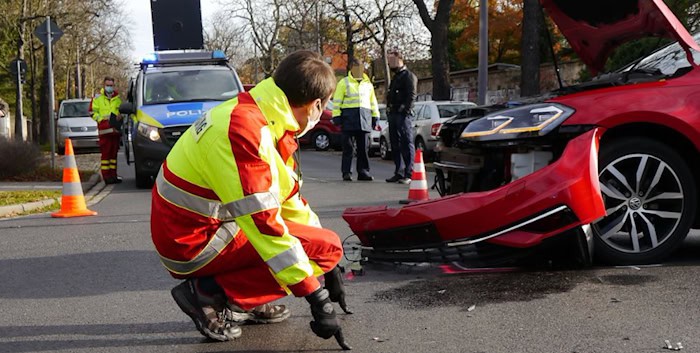
Accident recording in Dresden. Photo: VUFO GmbH
2.5 million traffic accidents occurred on German roads in 2023. Around 365,000 people were involved in these accidents. 2,830 people died. However, a look back at the 1970s illustrates the positive trend. In 1971, 21,330 people were still killed on German roads (East and West Germany). Traffic Accident Research at TU Dresden (VUFO) GmbH has set out to track down the causes and consequences of accidents. Every year, the employees and vehicles of VUFO GmbH are called out to 1,000 incidents, always accidents involving personal injury. On average, 3,500 individual pieces of information are recorded during an operation at the scene of an accident. In this way, knowledge is recorded, aggregated and made available in exciting software solutions that literally save lives. Find out how complex an accident investigation at VUFO GmbH is and how modern technology – from software to drones – is increasingly being used. You will be amazed at the importance of this work for the development of modern vehicles and traffic infrastructures.
“COLLISION ZERO” project – children and young people experience dangers in road traffic without being at risk
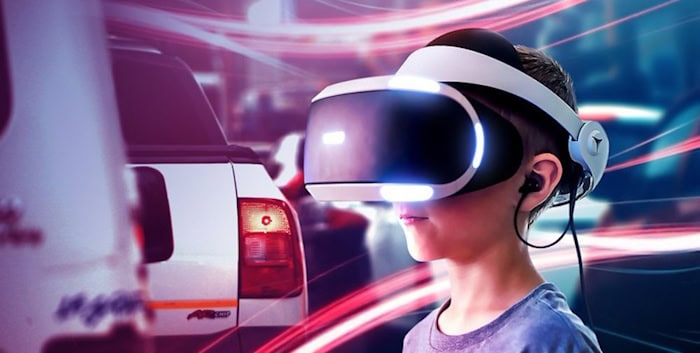
Children and young people learn about the dangers of road traffic thanks to the COLLISION ZERO project. Image: COLLISION ZERO
Last year (2023), 44,767 children and young people aged between 1 and 18 were injured on German roads and 115 children and young people died. Every twelve minutes, a child or young person is involved in a road traffic accident. The COLLISION ZERO project of the Fraunhofer IVI and the Wildstyle Network agency has set itself the ambitious goal of ensuring that no more children are injured on the roads in the future. A platform is to be created that not only documents accidents involving children and young people throughout Germany, but also makes it possible for current and future generations to experience them in the form of 3D simulations that are as realistic as possible using state-of-the-art VR technology. In this way, the youngest learn from real accident scenarios in their immediate surroundings without being in danger themselves. Join us in looking at a pioneering project that can also effectively and sustainably warn your children of the dangers of road traffic and thus protect them.
The research and developments of the Fraunhofer IVI as connecting elements
FSD GmbH, VUFO GmbH and the COLLISION ZERO project are just three of the many Saxon companies that are playing a decisive role in shaping the transportation of today and tomorrow. It is not only modern vehicles from VW, Porsche and BMW that are built in Saxony. Software companies are also working here on the vehicle operating systems of the future, developing driving safety systems and components or modern test systems and accident targets for crash and function tests or the training of autonomous driving systems. In addition to Saxony’s colleges and universities, which produce specialists, research results and new spin-offs such as VUFO GmbH, research institutes such as the Fraunhofer Institute for Transportation and Infrastructure Systems IVI play a key role in the mobility sector and Saxony’s reputation in this area. Each of the three companies presented in the course of this article either originates from the Fraunhofer IVI itself (such as COLLISION ZERO), provides its services based on a solution from the institute (such as FSD GmbH) or generates an important part of its business with the development of a data-driven ecosystem implemented jointly with the institute (such as VUFO GmbH).
Demonstration of the TASC system. Video: Fraunhofer IVI
For years, the Fraunhofer IVI has been researching and developing impressive solutions, either independently or in close cooperation with local companies, that make vehicles and traffic infrastructures safer and protect road users of all ages. Database and visualization solutions have been created that use data mining, machine learning and artificial intelligence to generate unique and valuable knowledge from huge amounts of data. Based on the Fraunhofer IVI Accident Prevention School (FAPS), which was awarded the 2017 Mobility Prize, the COLLISION ZERO project was created, for example. The DATA FACTORY developed by the Fraunhofer IVI – a data management system of the latest generation – forms the heart of the completely new specification information system (VIS) developed by FSD GmbH and the connected software application FSD.HU for all German vehicle testing organizations. The Fraunhofer IVI also developed the mobile test targets that FSD GmbH uses in its Radeberg test center to check driving safety and autonomous driving systems, among other things. Together with VUFO GmbH, the Dresden research institute also developed the Traffic Accident and Scenario Community (TASC) – a data platform based on real accident data from the police and processed using specially developed procedures and scientific methods, which not only depicts accidents and accident black spots in great detail, but can also convert them into simulation files, e.g. for vehicle manufacturers or the infrastructure development of cities and municipalities. In this fascinating way, the Dresden institute demonstrates the transfer of knowledge from research to industry and positions itself as a central partner for companies from all over Saxony and Germany.
Conclusion
Saxony is the hotspot for modern mobility and road safety solutions. In a close interplay between business, industry, university and non-university research, solutions are developed in the Free State that make vehicles and traffic infrastructures safer and more modern. Thanks to these solutions, Germany’s major testing organizations – from TÜV to DEKRA – are world leaders. No other country can analyze accidents, their consequences and all types of accident black spots so comprehensively and thus defuse or prevent them in the long term. On the basis of the accident data collected, vehicles are becoming safer from year to year, German car manufacturers are performing excellently in crash tests and traffic infrastructures are becoming ever smarter. At the same time, the knowledge gained will also provide better and more comprehensive protection for all road users, especially vulnerable target groups such as children and young people, pedestrians, cyclists and motorcyclists. However, it will be a while before there are no more fatalities on German roads. With every new data set, every new generation of software and every new insight gained, the dream of VisionZero – i.e. zero road deaths – comes a little closer. Also, or perhaps especially, thanks to Saxony’s traffic expertise.
Contacts
FSD Fahrzeugsystemdaten GmbH
Wintergartenstraße 4
01307 Dresden
Telefon: +49 351 6528880
E-Mail: sekretariat@fsd-web.de
DevBoost GmbH
Kaitzer Straße 36
01187 Dresden
Telefon: +49 351 89670820
E-Mail: info@devboost.com
Verkehrsunfallforschung an der TU Dresden GmbH
Semperstr. 2a
01069 Dresden
Telefon: +49 351 4389890
E-Mail: info@vufo.de
Trans4mation IT GmbH
Glashütter Straße 55
01309 Dresden
Telefon: +49 351 501940
E-Mail: info@trans4mation.de
Fraunhofer-Institut für Verkehrs- und Infrastruktursysteme IVI
Zeunerstraße 38
01069 Dresden
Telefon: +49 351 4640801
E-Mail: info@ivi.fraunhofer.de
Wildstyle Network GmbH
Werner-Hartmann-Str. 6
01099 Dresden
Telefon: +49 351 7962500
E-Mail: anja.neufert@wildstyle-network.com
– – – – –
Weiterführende Links
👉 FSD GmbH
👉 VUFO GmbH
👉 Project COLLISION ZERO
👉 DevBoost GmbH
👉 Trans4mation IT GmbH
👉 Wild Style Network GmbH
👉 VAMOS
👉 BMDV – Transport infrastructure
👉 KBA – German vehicle population
👉 TU Dresden Transportation Sciences
👉 HTW Dresden Infrastructures
👉 HTW Dresden Automotive Engineering
👉 Dresden Autonomous Driving
👉 Dresden Mobility of the future
_ _ _ _ _ _ _ _
This article was created as part of NEXT “In the spotlight: Software”.
👉 To the complete issue of the magazine
